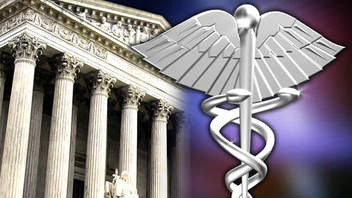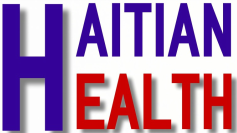Healthy People - Lifting the 5-year ban on Medicaid privileges for U.S. Green Card Holders10/22/2015  Hypertension and hyperlipidemia are conditions that can be avoided and controlled adequately. However, the number of people with these conditions is still unacceptably high in the U.S., especially among the most disadvantaged groups. Many contributing factors have been identified in the literature such as the lack of insurance benefits and access to care. As evidenced in the literature, individuals without health insurance are more susceptible to not being diagnosed and treated for high blood pressure and hyperlipidemia. Considering the status quo on the disqualification of immigrants during their first 5 years of residency in the U.S. for Medicaid benefits, researchers looked into the national data to determine what degree of probability existed for these immigrants to becoming uncontrollably hypertensive and hyperlipidemic. Using the data from the 1999-2000 National Health and Nutrition Examination Survey (NHANES), Zallman et al. (2013) [1] included in their study participants who were undiagnosed either because they were not informed by a health professional about their diagnosis of hypertension or hyperlipidemia; reported signs, symptoms, and laboratory confirmation of these diseases; or were not being prescribed medications. The participants categorized as having uncontrolled blood pressure had readings equal or superior to 140/90 mmHg. Those with hyperlipidemia were deemed uncontrolled according to the latest guidelines.
Out of the 27,596 participants, 22.6% were born outside the United States. Compared to U.S.-born adults, foreign-born adults, especially those who self-identified as blacks, were more likely to have undiagnosed and uncontrolled hypertension or hyperlipidemia. Overall, the foreign-born adults who lacked insurance "were nearly four times" more likely to be undiagnosed for hyperlipidemia and found to have a double risk of hyperlipidemia that was not controlled. Similarly, among the foreign-born adults without health insurance, the risk of having uncontrolled hypertension was almost double. Insurance status, as these data demonstrated, was greatly implicated in the "association between foreign birth and increased risk of uncontrolled and diagnosed disease". The authors suggested that the ban imposed on documented foreign-born adult immigrants from benefiting from Medicaid during the first 5 years of residency might be to be blamed for this situation. As proposed, further studies should be done on the subject and ultimately new legislation passed in favor of the newly arrived immigrants to prevent the deterioration of their health over the years, reduce costly and preventable admissions to Emergency Services; and consequently reduce the National Health Care Expenditures. Reference 1. Zallman, L., Himmelstein, D. H., Woolhandler, S., Bor, D. H., Ayanian, J. Z., Wilper, A. P., & McCormick, D. (2013). Undiagnosed and Uncontrolled Hypertension and Hyperlipidemia among Immigrants in the US. Journal of Immigrant and Minority Health, 15(5), 858-865. doi: 10.1007/s10903-012-9695-2
0 Comments
Leave a Reply. |
Mickelder Kercy, M.D. M.S.I learned about the art and science of medicine and was introduced to the community and population-based aspects of public health at the Université Notre Dame d'Haiti. My early practical interventions in the field of public health during medical residency in Haiti fostered my interest in pursuing additional academic training in public health. At Columbia University in the City of New York, I specialized in Public Health with a minor focus on Community Health Education. My special interest is in non-communicable chronic diseases, and the social-ecological approach to health education and promotion in secular and faith-based communities. Archives
October 2017
Categories
All
To subscribe to our blog and receive notifications of new posts by email
|


 RSS Feed
RSS Feed
